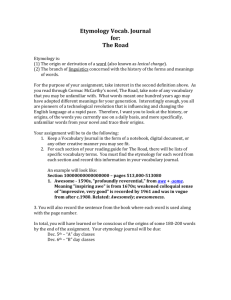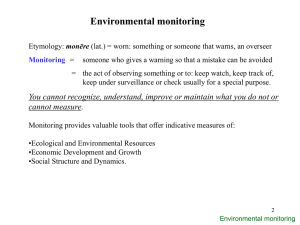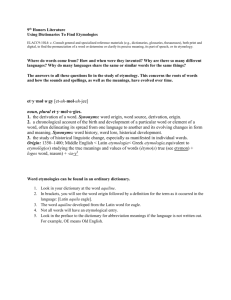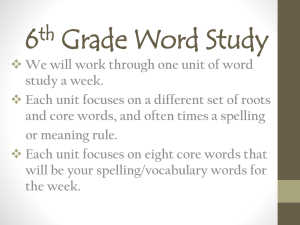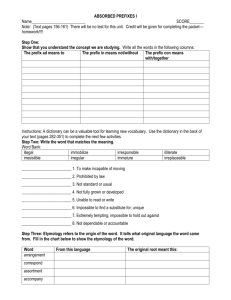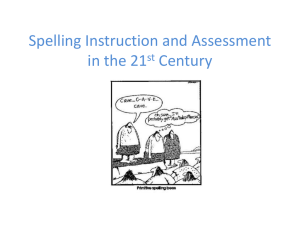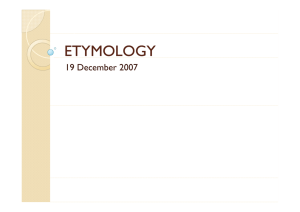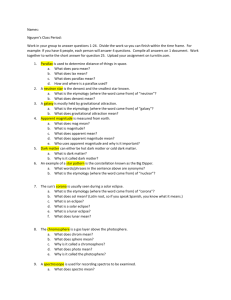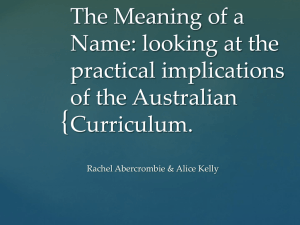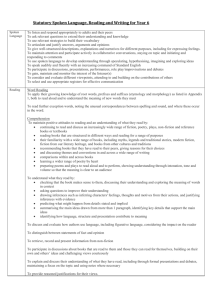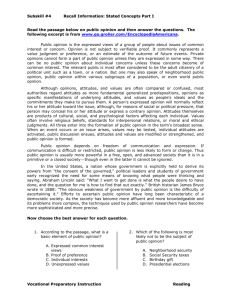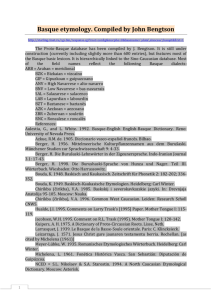FAIRLESS ELEMENTARY SCHOOL LESSON PLAN
advertisement
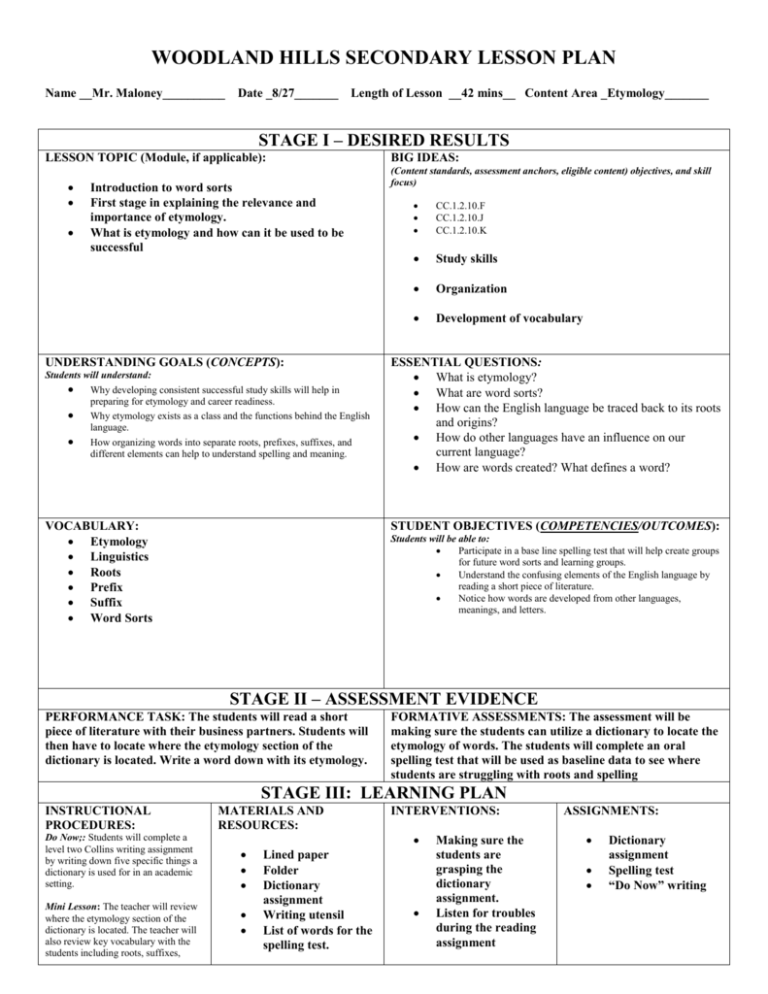
WOODLAND HILLS SECONDARY LESSON PLAN Name __Mr. Maloney__________ Date _8/27_______ Length of Lesson __42 mins__ Content Area _Etymology_______ STAGE I – DESIRED RESULTS LESSON TOPIC (Module, if applicable): Introduction to word sorts First stage in explaining the relevance and importance of etymology. What is etymology and how can it be used to be successful UNDERSTANDING GOALS (CONCEPTS): Students will understand: Why developing consistent successful study skills will help in preparing for etymology and career readiness. Why etymology exists as a class and the functions behind the English language. How organizing words into separate roots, prefixes, suffixes, and different elements can help to understand spelling and meaning. VOCABULARY: Etymology Linguistics Roots Prefix Suffix Word Sorts BIG IDEAS: (Content standards, assessment anchors, eligible content) objectives, and skill focus) CC.1.2.10.F CC.1.2.10.J CC.1.2.10.K Study skills Organization Development of vocabulary ESSENTIAL QUESTIONS: What is etymology? What are word sorts? How can the English language be traced back to its roots and origins? How do other languages have an influence on our current language? How are words created? What defines a word? STUDENT OBJECTIVES (COMPETENCIES/OUTCOMES): Students will be able to: Participate in a base line spelling test that will help create groups for future word sorts and learning groups. Understand the confusing elements of the English language by reading a short piece of literature. Notice how words are developed from other languages, meanings, and letters. STAGE II – ASSESSMENT EVIDENCE PERFORMANCE TASK: The students will read a short piece of literature with their business partners. Students will then have to locate where the etymology section of the dictionary is located. Write a word down with its etymology. FORMATIVE ASSESSMENTS: The assessment will be making sure the students can utilize a dictionary to locate the etymology of words. The students will complete an oral spelling test that will be used as baseline data to see where students are struggling with roots and spelling STAGE III: LEARNING PLAN INSTRUCTIONAL PROCEDURES: Do Now;: Students will complete a level two Collins writing assignment by writing down five specific things a dictionary is used for in an academic setting. Mini Lesson: The teacher will review where the etymology section of the dictionary is located. The teacher will also review key vocabulary with the students including roots, suffixes, MATERIALS AND RESOURCES: INTERVENTIONS: Lined paper Folder Dictionary assignment Writing utensil List of words for the spelling test. Making sure the students are grasping the dictionary assignment. Listen for troubles during the reading assignment ASSIGNMENTS: Dictionary assignment Spelling test “Do Now” writing prefixes, and the word etymology. Guided Practice: Students will participate in a guided spelling test. This test will give baseline data to where the student’s strengths and weaknesses lie for the future word sorts. Independent Practice: Students will be given an assignment where they have to look up certain elements of words in a dictionary including origins and etymologies Summations/Formative Assessments: The summative assessment will be the baseline data used for the word sorts. The formative assessments will be the actual spelling test and the etymology dictionary assignment Reflections: The teacher will enter the baseline data in for the word sorts and reflect to create future word sorts for the students. Reading assignment
